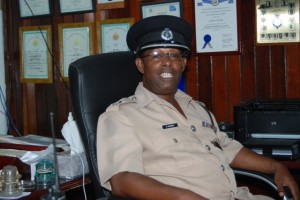Serious crime figures
The recent claim by the police about the state of serious crimes requires some clarification. When people hear that serious crimes are down, obviously they would want to know exactly what it is that the relevant statistics represent.
This is no more so than when it is the view of many that the offences identified in the releases seem focused on the violent crimes of murder, robbery under arms, and robbery with aggravation. There is a curious lack of detail regarding “total serious crimes” and therefore the citizens are none the wiser about what constitutes that amalgam.
The fundamental observation being made here is that officialdom needs to recognize that there comes a time in most people’s experiences when waffling and obfuscation must be replaced with cogent and unarguable facts which relate to the safety and security expectations of law-abiding citizens.
Moreover, the police should not be measured on the number of murders committed or not committed; outside of interventions by partners in the social services sector, there is no way that the Guyana Police Force could prevent homicides whether domestic, disorderly or felony. One incontrovertible indicator should relate to professional investigations which result in successful prosecutions leading, ideally, to convictions.
Notwithstanding the fact that those crimes mentioned above must be tackled with coherent and comprehensive strategies, if we are to be provided with an appreciable level of comfort, there should be no denying that there are crimes just as heinous which are not mentioned with the same enthusiasm in terms of the police successes or lack thereof.
It is no secret that certain crimes feed the commission of others, and are themselves fed by others. Matters are not helped by politicising the pursuit of certain types of crimes. Among the offences which are not publicized as falling within the ambit of serious crimes are: drug trafficking; human trafficking; arms trafficking; prostitution and child sex
Tax evasion and revenue offences are investigated and prosecuted selectively, regardless of how material, contrived or tenuous the purported evidence. Money laundering; corruption and bribery; intellectual property offences; and environmental crimes are seemingly ignored in terms of their potential to cause serious harm to the nation’s image, since this reflects an alarming level of insouciance and possibly official complicity.
The distribution and sale of illegal drugs impact society in myriad negative ways, but these cases, when they are made, do not feature in the serious crimes data as released by the police. It is very obvious that political considerations are paramount when it comes to determining what will be made public and what should not. The lethargy which characterizes how certain crimes are dealt with makes that conclusion inescapable using deductive reasoning.
A significant omission in the publication of serious crime statistics is the rate of crime, which basically, is the number of reported crimes by the population, and multiply the quotient by 100,000. So the population is left none the wiser about crime levels and the rate of their commission, what the police are actually doing to minimize if not eliminate certain types of crime, and how the public can help to avoid becoming victims.
Furthermore, as mentioned above, politics play a significant role in what is reported, since some governments are loath to release any information which they feel makes them look inept, or that which confirms their incompetence.
Citizens have a right to be told these things, apart from being regaled with high figures in the sum of hundreds of millions of dollars being spent on the force. It would be interesting to go beyond that worn-out practice and focus instead on the indirect costs of crime, with which the populace is more likely to empathise. From the lack of evidence, it appears as if to date, the force has not conducted the type of surveys whose findings can assist in the formulation of realistic strategies aimed at addressing citizens’ safety and security concerns and fears.
Mouthing reform and strategies because the words sound good will not cut it. The Guyanese people naturally expect that their contact with members of the force will not leave a bitter aftertaste. And therefore a force characterised by professional ethics-driven men and women would be a sure indication that reform is indeed underway.















